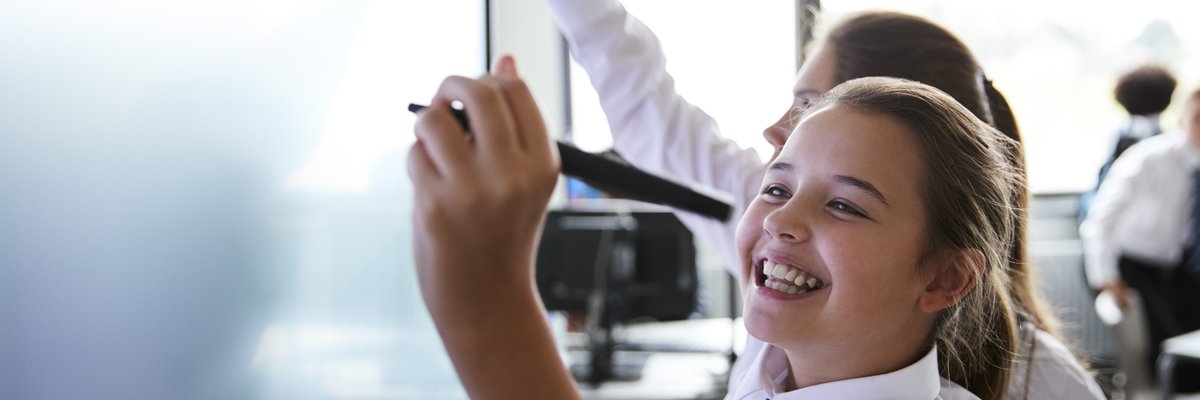- Opinion
Rekindling the Spark: What the APPG 'Loss of the Love of Learning' Report Means for Education—and for Assessment

If you work in education today, you've probably felt it: a narrowing of joy and curiosity in classrooms, a relentless pressure to cover content, and a worry that we’ve lost sight of what really matters. The latest All-Party Parliamentary Group for Education (APPG) report—“The Loss of the Love of Learning” (15th July 2025) —diagnoses these symptoms with honesty and urgency.
The Heart of the Problem: Disengagement Is Systemic, Not Accidental
The APPG report sets out the evidence clearly:
- Pupils are attending less and enjoying school less.
- Teachers—who remain deeply committed at heart—report escalating burnout, shrinking autonomy, and a love of teaching under threat.
- Parents grow less confident that formal schooling offers the support and engagement their children need.
- Critical “hooks” like creative subjects, field trips, and exploratory learning are squeezed out by an overloaded, rigid curriculum.
Drilling ever deeper into academic content or ramping up standardisation hasn’t reversed the trend. In fact, as the report details through teacher and pupil voices, it is often fuelling detachment, narrowing opportunity, and exacerbating inequity
The Turning Point: What Kind of Learning Do We Value?
It’s time to flip the question: rather than asking how to get students to perform better on a prescribed set of exams, we should be asking—how do we help them love learning again? And how do we make school a place of belonging and connection rather than pressure and performance anxiety?

The APPG report makes a convincing case for:
- Slimming down the curriculum so there’s space for depth, creativity, and genuine understanding.
- Bringing joy, relevance, and diversity back into what and how we teach.
- Restoring trust and purpose for teachers by granting them the professional latitude to innovate and respond to their pupils’ needs.
- Rethinking the role of assessment—from a tool of sorting and stress to a driver of rich, positive learning.
A New Role for Assessment: Time to Unleash Professional Judgement
Assessment sits at the heart of engagement—and, all too often, disengagement. High-stakes, summative tests dominate the landscape, crowding out the time and attention for learning that is meaningful and memorable. The report’s contributors point toward systems that have become “mile wide and inch deep”: ticking content boxes instead of sparking understanding.
But there’s a brighter path—one where assessment:
- Makes visible a wider range of talents and achievements, not just exam-taking ability
- Invites professional judgement and collaboration among teachers
- Offers students formative feedback, agency, and a sense of progression
Adaptive Comparative Judgement, as embodied in RM Compare, is designed for exactly this moment. By enabling authentic evaluation of creative, applied, and complex work, it returns agency to the profession and signals to young people: what you can do matters, not just what you can memorise.
Why RM Compare, and Why Now?
RM Compare isn’t just a tech platform—it’s a vehicle for re-envisioning the very purpose of assessment. Here’s what our approach can offer education in the wake of the APPG findings:
- Celebrating the overlooked, the creative, and the complex: When assessment focuses narrowly on mark schemes and right-or-wrong answers, we miss so much of what students are capable of. Comparative judgement allows schools to value creativity, personal expression, and real application.
- Reinvigorating teacher expertise: The report is clear: teacher burnout is linked to a loss of professional autonomy. Comparative judgement empowers teachers to make meaningful, collaborative decisions, restoring ownership and even joy to the act of assessment.
- Equity and inclusion: High-stakes exams are inherently stressful, and disproportionately disadvantage those with SEND, mental health needs, or less stable home lives. Our approach offers alternative ways for every student to show what they know—reducing anxiety and making room for diverse strengths.
- Building trust and relevance: When assessment is transparent, professionally grounded, and connected to real-world tasks, students and parents alike can see its purpose.
Looking Forward: Lessons for Us All
The “Loss of the Love of Learning” report is a timely rallying cry. It reminds us that technical fixes and new policies won’t be enough unless we restore joy, agency, and relevance to both learning and assessment.
Assessment needs to change, and change fast—but not by defaulting to more metrics, more measurement, more pressure. Instead, let’s build systems that inspire, include, and empower everyone involved.
At RM Compare, we’re not just watching this change from the sidelines. We’re ready to help lead it—from shaping assessment that puts people first, to championing innovation and trust in the classroom. Let’s rediscover the love of learning—together.
